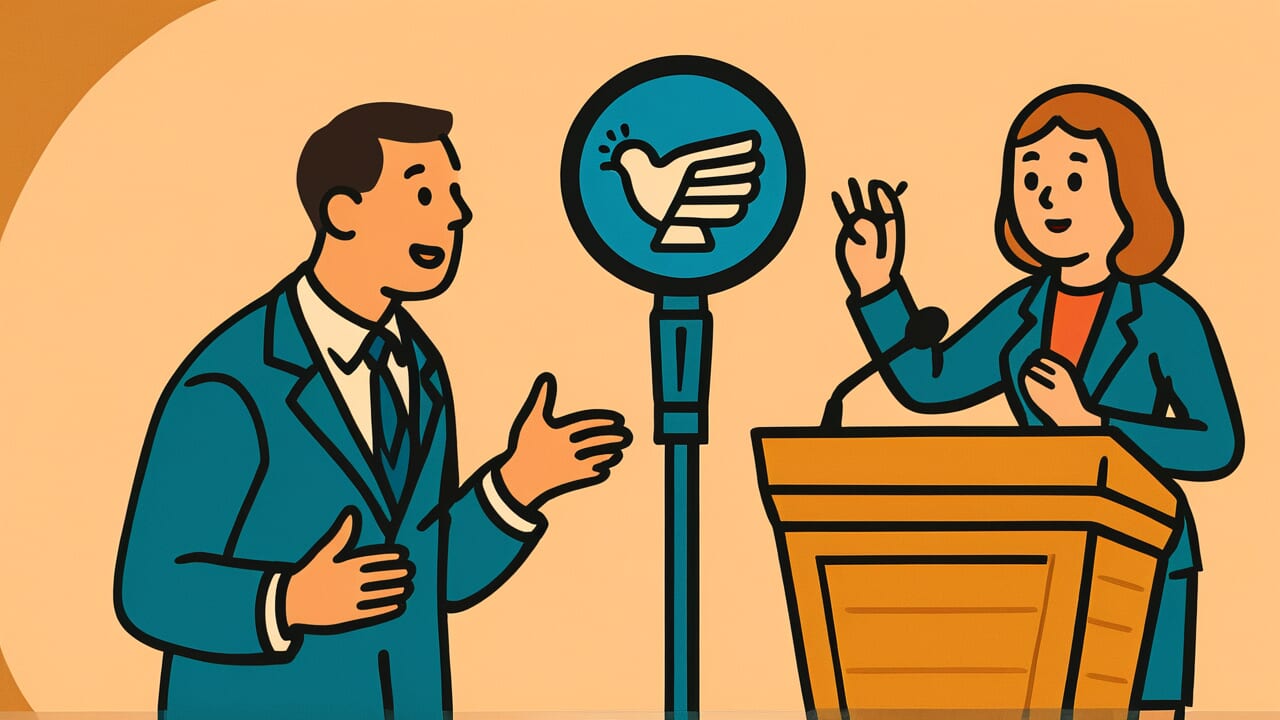How to Read “A good example is the best sermon”
A good example is the best sermon
[uh GOOD ig-ZAM-puhl iz thuh best SUR-muhn]
Meaning of “A good example is the best sermon”
Simply put, this proverb means that showing good behavior teaches others better than just talking about it.
The literal words talk about examples and sermons. An example is something you do that others can see. A sermon is a speech about right and wrong. The deeper message is that actions speak louder than words when teaching others.
We use this wisdom in many parts of daily life today. Parents know that children copy what they see more than what they hear. Teachers who show kindness get better results than those who just talk about it. Bosses who work hard inspire their teams more than those who just give speeches about hard work.
What’s interesting about this wisdom is how it reveals human nature. People naturally watch what others do and copy it. We learn by seeing patterns in behavior. When someone’s actions match their words, we trust them more and want to follow their example.
Origin and Etymology
The exact origin of this specific wording is unknown. However, similar ideas appear in various religious and philosophical traditions throughout history. The concept has been expressed in different forms for many centuries.
This type of saying became important during times when moral teaching was central to community life. Religious leaders and teachers needed effective ways to guide behavior. They discovered that demonstration worked better than explanation alone.
The saying spread through oral tradition and written works about education and leadership. Over time, it moved beyond religious contexts into everyday wisdom. Today we use it in schools, workplaces, and families to remind people that modeling behavior is powerful.
Interesting Facts
The word “sermon” comes from Latin “sermo,” meaning conversation or speech. Originally, sermons were meant to be discussions, not just one-way lectures. The word “example” comes from Latin “exemplum,” meaning a sample or pattern to follow.
Usage Examples
- A teacher told her colleague: “I stopped lecturing kids about being on time. Now I just make sure I’m always early to class. A good example is the best sermon, and my tardiness problem disappeared.”
- After watching his manager stay late to help the team, Jake said: “I used to think leadership was about giving orders. But seeing how she works alongside us taught me more. A good example really is the best sermon.”
Universal Wisdom
This proverb reveals a fundamental truth about how humans learn and change behavior. We are naturally wired to observe and imitate others rather than simply follow verbal instructions. This pattern exists because survival once depended on watching successful people and copying their methods.
The wisdom exposes a key contradiction in human communication. We often try to influence others through words, but our brains are designed to trust actions more than speech. When someone’s behavior contradicts their words, we instinctively follow what we see them do. This creates a powerful responsibility for anyone who wants to guide or teach others.
The saying also highlights why authentic leadership emerges naturally while forced authority often fails. People can sense when someone genuinely lives their values versus when they just talk about them. This detection ability helped our ancestors identify trustworthy group members. Those who demonstrated reliability through consistent actions became natural leaders because others felt safe following their example. The proverb reminds us that influence flows from integrity, not from the ability to give impressive speeches.
When AI Hears This
When people speak one way but act another, our brains automatically distrust them. We have built-in detectors that spot fake behavior within seconds. These mental alarms evolved to protect us from dishonest people. Actions bypass these warning systems because they feel more honest than words.
This pattern exists because survival once depended on reading people correctly. Those who could spot liars lived longer and had more children. We inherited brains that trust what people do over what they say. Even today, we feel drawn to leaders who walk their talk.
What fascinates me is how this creates a beautiful efficiency in human learning. You skip the mental work of evaluating someone’s words when their actions speak clearly. Your brain can relax and simply copy what works. This automatic copying system lets wisdom spread without lengthy explanations or debates.
Lessons for Today
Living with this wisdom means accepting that your actions constantly teach others, whether you intend it or not. People around you notice patterns in your behavior and draw conclusions about your values. This awareness can feel heavy, but it also offers a clear path to positive influence.
In relationships, this understanding changes how we approach disagreements and growth. Instead of focusing on what others should do differently, we can examine our own behavior first. When we model the changes we want to see, others often respond naturally. This approach reduces conflict because people don’t feel lectured or judged.
The wisdom scales beautifully to larger groups and communities. Organizations with leaders who demonstrate their values create stronger cultures than those with impressive mission statements but inconsistent behavior. Communities change when individuals quietly live out better ways of being. The proverb reminds us that transformation often happens through patient demonstration rather than dramatic proclamation. This path requires more personal commitment but creates lasting change that spreads naturally from person to person.



Comments